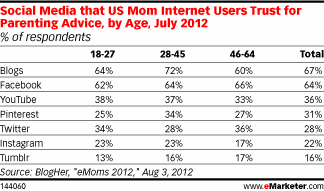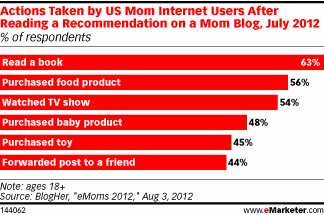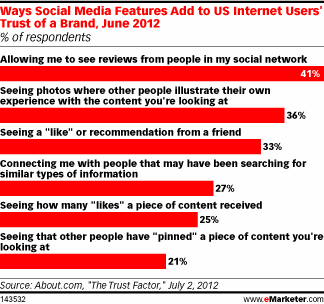More than two-thirds of mothers consider blogs to be a reliable resource for parenting information
Anxious mothers show a tendency to go online in search of answers to an endless litany of questions about raising and caring for their kids. And mothers who looked to the web for parenting advice considered blogs to be the most trustworthy social media platform, according to a July 2012 survey of US online mothers by blog company BlogHer.
More than two-thirds of respondents said they trusted the information and advice gleaned from blogs. Interestingly, faith in blog posts spiked among mothers ages 28 to 45, at 72%, and was a bit lower among both younger and older moms. After blogs, Facebook was the next most trusted social media network at 64%, followed by YouTube at 36%.
Social Media that US Mom Internet Users Trust for Parenting Advice, by Age, July 2012 (% of respondents)
Mothers are not just reading advice online, they’re also taking it. That can mean that a child-specific product or service endorsed on a blog can soon be in a mother’s shopping cart. The most common purchase made as a result of a recommendation on a mom blog was that of a book, at 63%. But BlogHer also found that 56% of moms had made a food purchase based on a blog testimonial, while 48% had bought a baby product.



